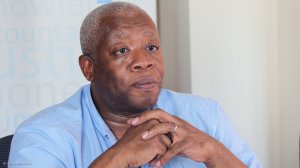In the book Moral Tribes: Emotion, Reason and the Gap Between Us And Them, author Joshua Greene makes some compelling arguments about some of the factors behind conflict in society.
He argues that people in society, or what he calls ‘moral peoples’, “fight not because they are fundamentally selfish but because they have incompatible visions of what a moral society should be”.
In my view, they fight because they have incompatible visions of what a civilised society should look like. For instance, is a society that tolerates poverty, unemployment and inequality civilised? Is a society that sells things such as education and health civilised? Put differently, are you civilised if social and economic injustices cause you no discomfort, especially if it is your privilege which blinds you from reality?
In part, the answers to these questions lie in something else Greene says in his book. According to him, “some tribal disagreements arise because tribes have values that are inherently local, particular to the tribe in question”. Greene also argues that our perceptions of reality are coloured by our values.
What does all of this have to do with the state of our nation? Everything!
For purposes of my argument, a tribe is a group of people – a race, class or any other identity we have constructed in order to define ourselves within and others outside our circle of compassion, privilege and access to social and economic resources.
Therefore, the primary tension in South Africa today results from the fact that some tribes believe that their values and vision of what constitutes a good society are superior to those of other tribes. This is what the #Rhodesmustfall and #Feesmustfall campaigns are about. They are about the extent to which we are not fully evolved and are still far from being a civilised society – a society in which education is not a commodity and is seen as an investment instead of an expense, a society where social and economic justice are not an aberration. In short, we are the antithesis of a civilised society and, as long as that remains the case, class and racial conflict will persist unabated.
It is, therefore, my contention that, unless we change our minds and ways, South Africa is heading towards a perfect storm of discontent and conflict. To avoid this, we need a fundamental change in mindset and attitude, and this must begin with how we approach issues of leadership.
When it comes to leadership, or the lack thereof, we tend to characterise the challenge incorrectly. Our tragedy lies not in a dearth of good leaders but in a lack of leadership. The fact that there is a chronic lack of leadership across the board should not blind us to the fact that we are blessed with many a good leader in business, politics, civil society, labour, religion and elsewhere.
What defines lack of leadership in our country is the unwillingness to act beyond the narrow confines of our sectors and interests. This is one of the reasons for the low levels of trust between government and business, politicians and citizens, as well as the citizen and the State. It is for this reason that we are unable to create and sustain multiple platforms for dialogue. It is the same reason why, when confronted with an argument, our most immediate instinct is to find stratagems to thwart it instead of examining whether it is true. As a result, we fail to co-own our national challenges. This sense of co-ownership would make us realise that, when it comes to issues such as free education for all and the extension of health insurance to all, we must first agree on matters of principle and thereafter proceed to debate the cost. And this must be a debate about the cost of doing it as well as the cost of not doing it. Which of the two can we ill afford?
The alternative is conflict and the deferment of the dream of a nonracial society at peace with itself. In 1994, we promised the kingdom of heaven to our children, and today they are turning on us because we lack the courage to make it happen. We lack the courage to fight for a common vision of what constitutes a good and civilised society. Our leaders lack the courage and moral authority to impose an agenda for change on those who benefit from a society that, 21 years into democracy, remains the antithesis of a civilised society. This, in the end, will be their downfall and the downfall of us all.
We have a choice: we can change voluntarily or our children will force the change on us. We must decide whether the good society we are destined to become will come into being – with or without us?
EMAIL THIS ARTICLE SAVE THIS ARTICLE
To subscribe email subscriptions@creamermedia.co.za or click here
To advertise email advertising@creamermedia.co.za or click here










